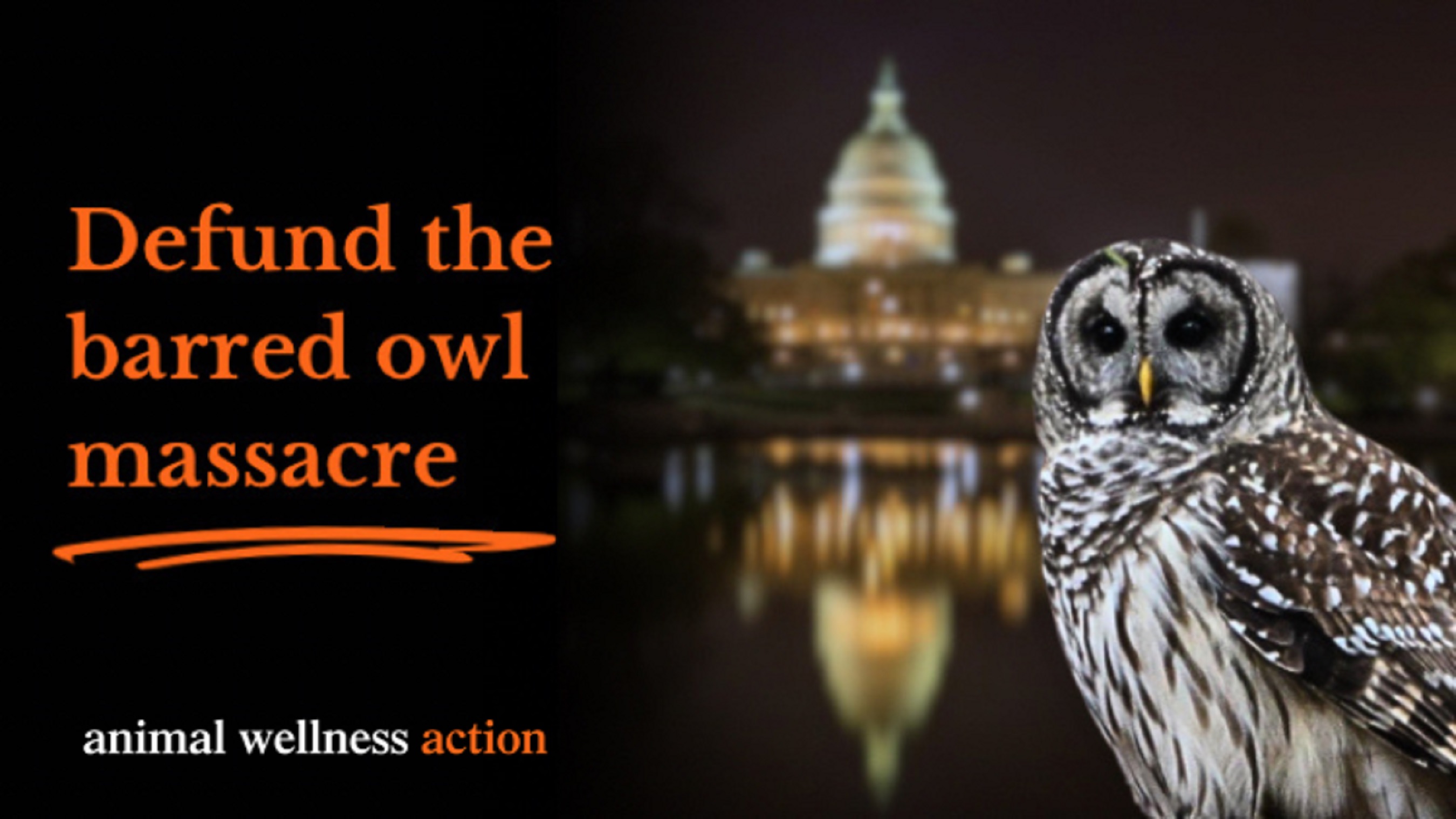This week, the U.S. Fish and Wildlife Service (USFWS) gave final administrative approval for a controversial plan that would authorize the killing of 450,000 barred owls in the Pacific Northwest over the next 30 years. This unprecedented action would result in the deaths of 15,000 barred owls annually—an average of 42 owls every day.
Experts, including those within our organization, strongly believe that the USFWS will be unable to halt the killings after three decades due to the likely continued migration of barred owls into control areas. This raises the alarming possibility that the killing plan could extend indefinitely, creating a grim and ongoing tragedy for these North American forest owls.
We urgently call upon the public to join us in opposing this costly, inhumane, and ultimately doomed initiative. This is the largest massacre of raptors ever proposed in any country, and it sets a dangerous precedent for how we manage wildlife in our increasingly disrupted ecosystems.
The rationale behind this mass killing stems from the barred owls' migration into the habitats of the northern spotted owls—an area they have only recently entered due to human-induced changes in land management and climate. Despite being a protected species under the Migratory Bird Treaty Act, barred owls are being unfairly targeted as scapegoats for the declining populations of spotted owls, which have been severely impacted by habitat loss driven by human activities.
Our government’s plan to eradicate a native species to protect another native species is both misguided and ethically questionable. Barred owls and spotted owls have begun interbreeding, a natural process that could lead to more adaptable offspring in the face of ongoing environmental changes. Rather than embracing this natural adaptation, the USFWS is opting for a mass killing—a decision that could have far-reaching consequences for wildlife management practices.
Imagine the implications if we extended this approach to other species interactions affected by climate change. For instance, if orcas off the Pacific Northwest coast migrated to Hawaii due to shifting ocean temperatures and began preying on endangered Hawaiian monk seals, would it be justifiable to initiate a culling of the whales? Such actions would be unthinkable, yet this is the logic being applied to the barred owl situation.
We must advocate for smarter, more strategic, and less violent solutions to protect threatened species. The mass killing of North American native species should never be an option.
We urge the Biden Administration to reconsider and abandon this destructive plan. The Administration has already failed to address similar issues, such as the state-run wolf massacres in the Mountain West, the opening of wildlife refuges to sport hunting with toxic lead ammunition, and the aggressive roundups of wild horses and burros on federal lands. We must not allow the USFWS to add the massacre of barred owls to this list.
Our organization has already achieved significant victories, such as halting the wild horse roundups at Theodore Roosevelt National Park in North Dakota. Now, we need your support to stop the USFWS from moving forward with this ill-conceived plan. We are building a coalition of 166 groups to oppose this initiative, but we need resources to fund legal action, national media campaigns, and legislative advocacy to ensure the forests of the Pacific Northwest do not become killing zones for forest owls.
The Vancouver Columbian and The Los Angeles Times, both based in regions affected by this plan, have voiced strong opposition, emphasizing the unworkable nature of this strategy. We urge you to stand with us in this critical fight.
Please donate now to support our efforts, and contact your U.S. Representatives and Senators to demand that they take immediate action to defund and halt this unnecessary and brutal plan.
This is a pivotal moment. We cannot let this unprecedented and cruel plan go forward. Together, we can ensure that the barred owls, and the natural ecosystems they inhabit, are protected for future generations.






















